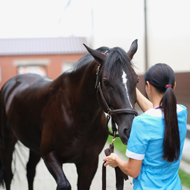VMD launches world-first AMR surveillance study
Household and vet practices will be asked to submit faecal samples.
The Veterinary Medicines Directorate (VMD) is to develop the world’s first dedicated surveillance system of antibiotic-resistant infections.
Using the surveillance system, it hopes to detect antimicrobial resistance (AMR) levels in pets and prevent the transmission of diseases between pets and humans.
With over half of UK adults living with pets, the VMD says that bacteria can spread easily between animals and humans. While much of this bacteria does no harm, antibiotic-resistant bacteria can lead to serious health consequences.
The surveillance project will aim to improve understanding about the levels of antibiotic-resistant bacteria living in household pets across the UK. This will provide the first AMR surveillance data from healthy companion animals.
The programme will include outreach to households and veterinary practices, calling for faecal samples from the animals they live with and look after.
The study will be led by Scotland’s Royal College (SRUC) over the course of four years. SRUC has previous experience in this field, having established surveillance programmes in other countries.
It will build upon the VMD’s existing surveillance programmes, which currently cover a limited number of clinically unwell animals.
John Berezowski, professor in disease surveillance at SRUC, said: “This initiative is critical for a better understanding of the transmission and maintenance of AMR in our pets. Our experts have worked hard to develop a practical AMR surveillance system.
“We plan to follow a team approach, working with pet owners and their vets as we explore how best to collect samples for surveillance throughout the UK.”
Abi Seager, VMD CEO, said: “Antimicrobial resistance is one of the most serious global health threats that we face.
“I am proud to launch this ground-breaking AMR surveillance project in healthy cats and dogs with SRUC, who have a proven track-record of establishing surveillance programmes from the ground-up, and this new study is a truly One Health intervention to tackle AMR.”
Image © Shutterstock



 The BEVA has opened two new roles on its Nurse Committee.
The BEVA has opened two new roles on its Nurse Committee.